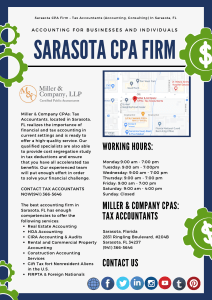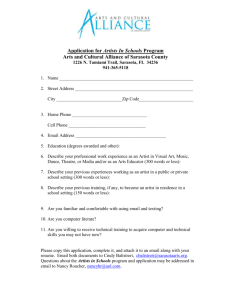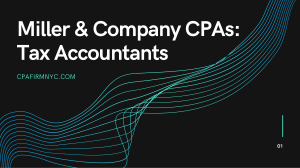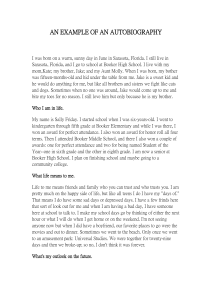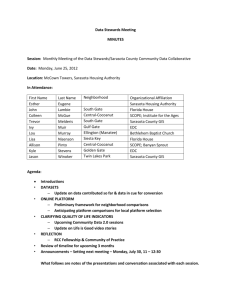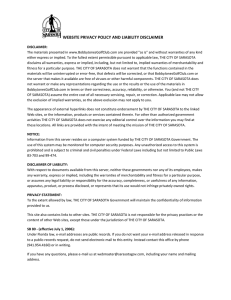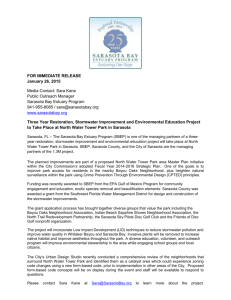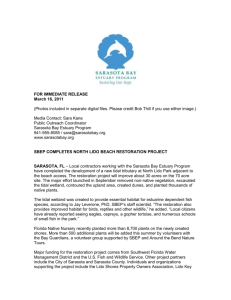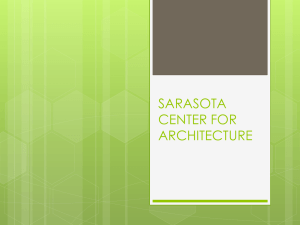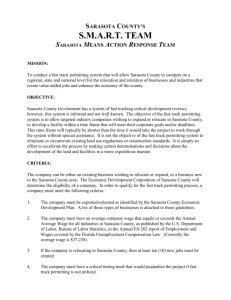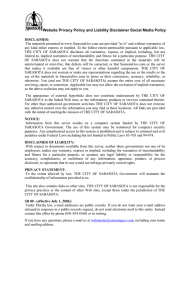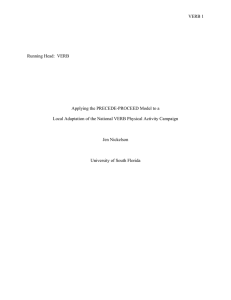Community Data 2.0 - Community Data Collaborative
advertisement
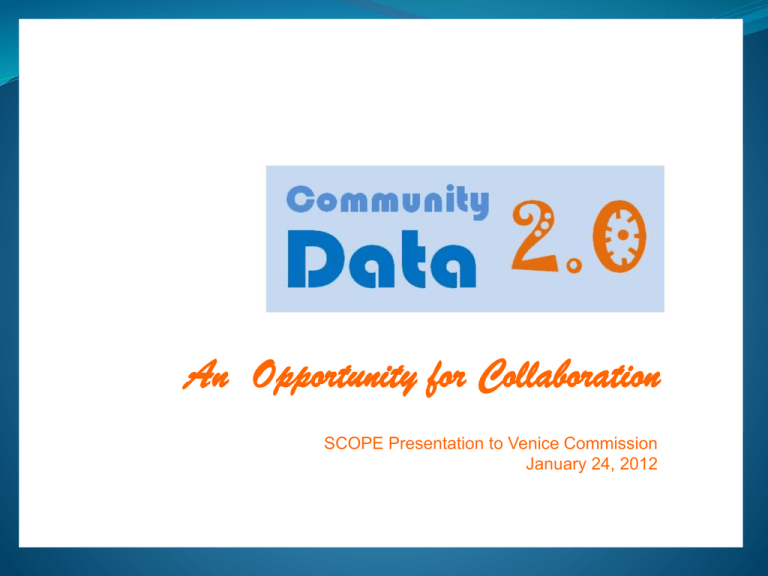
An Opportunity for Collaboration SCOPE Presentation to Venice Commission January 24, 2012 The What & Why of Community Data To clarify local, present-day realities. To continually reflect together for: Sense-making Decision-making Action “Community Data for Community Change.” Features & Benefits of High Quality Data Features Benefits Granular Preventing Frequent Citizen-Centric overgeneralization Keeping up with the pace of change Acknowleding primary locus of control Composite GIS Map Boundaries: • • • • • Census Tract / Block Group / Block Zip Codes School Attendance Zones Voting Precincts Neighborhood & Homeowner’s Associations Demographics: • Total # • Age: Over 65 Years, Under 18 Years, Under 5 Years • Race / Ethnicity: Black / AfricanAmerican, Hispanic / Latino, White • Households: Owners/Renters, with Kids, with Single Individuals Assets: • • • • • • • Libraries Churches Firehouses Parks Schools Businesses Neighbor-Identified Assets Indicators of Well-Being: • • • • • • • Civic Participation Culture & Recreation Economy Health Learning Environment Social A VeniceExample Boundaries: • • • • • Census Tract / Block Group / Block Zip Codes School Attendance Zones Voting Precincts Neighborhood & Homeowner’s Associations Demographics: • Total # • Age: Over 65 Years, Under 18 Years, Under 5 Years • Race / Ethnicity: Black / AfricanAmerican, Hispanic / Latino, White • Households: Owners/Renters, with Kids, with Single Individuals Assets: • • • • • • • Libraries Churches Firehouses Parks Schools Businesses Neighbor-Identified Assets Indicators of Well-Being: • • • • • • • Civic Participation Culture & Recreation Economy Health Learning Environment Social An Update on Community Data 2.0: The May 19 County-Wide Session Data 2.0 Convening - Participants Neighborhoods Central-Cocoanut, Plymouth Harbor Government Sarasota County: Commissioners; Departments of Sustainability, Health & Human Services, & Libraries; City of Sarasota: Neighborhood Services, Newtown Redevelopment, Information Technology; City of North Port Media Sarasota Herald-Tribune, WSLR Education Sarasota County School District, Ringling, New College, USF, University of Florida, Argosy Non-Profit Organizations & Related Networks YMCA, Community Youth Development, Senior Friendship Centers, Girls Inc., Suncoast Partnership to End Homelessness, Sarasota Partnership for Children’s Mental Health, Independent Transportation Network, SCOPE, SCORE, Jewish Family and Children’s Services, Multicultural Health Institute, Argus Foundation, Sarasota Convention & Visitors Bureau, Collins Center Private Business DwellGreen, Osborn Sharp Associates, Michael Saunders & Company, ReMax Alliance Group, Avastone Consulting, Arox Land Development, Banyan Sprout Economic Development Sarasota County Economic Development Corp., Venice Chamber of Commerce Philanthropy Community Foundation of Sarasota County, Gulf Coast Community Foundation, Selby Foundation, Van Wezel Foundation Data 2.0 Convening - Questions Engagement What inspired you to be a part of this community convening today? Existent Indicators that Matter As someone who lives and/or works in Sarasota County, what surprises you in the patterns revealed in these data? Which patterns interest, concern or inspire you most? Innovations What other local innovations do you know about? How do you expect you could make the most of these innovations, as a resident and as a professional? Qualities of WellBeing that Matter What are the qualities of life that children, adults, and families in our community want? Everyday Evidence What would these qualities look like if we could see them? Proposed Indicators How can we measure these qualities? Next Steps Regarding: Core Questions, Datasets / Data Stewards, Technologies, Engagement & Other: Who needs to be a part? What would you & others DO next? What else needs to exist or happen? Data 2.0 Convening - Questions Total of 160 participants + 5 SCOPE staff members Partnership Opportunities for Consideration Contributing Data Co-founding a Community Data Collaborative “It is a pivotal time. We need to be change- makers – and very capable ones at that.” “How can we be more than just anxious critics of the status quo or wishful thinkers about a better future, and become actual and effective agents for large-scale transformation?” “We believed that ways of seeing could change ways of doing.” Getting to Maybe: How the World is Changed. Westley, Zimmerman & Patton. (2006).
